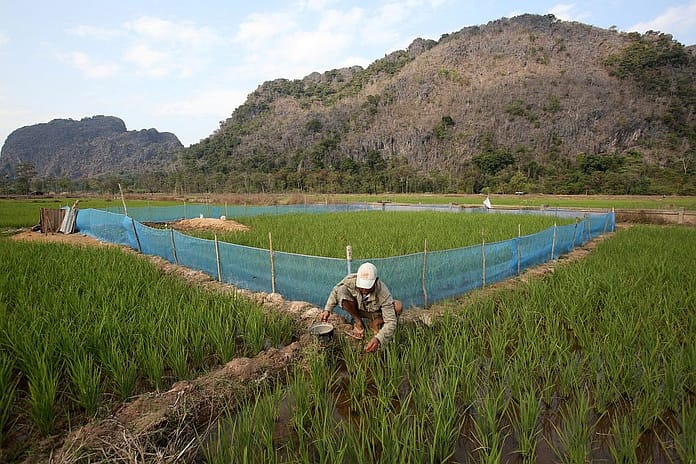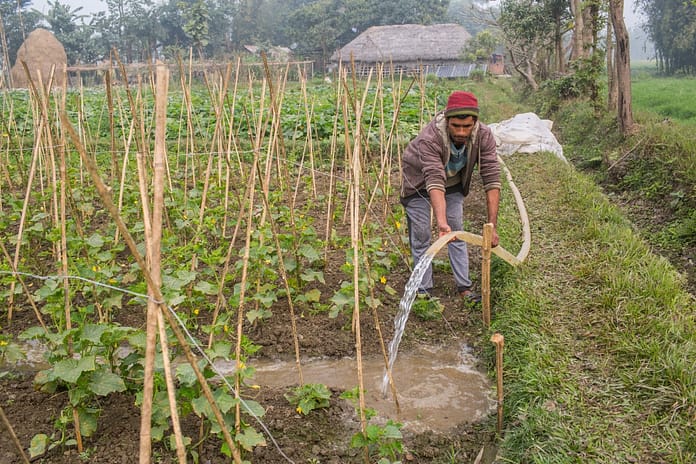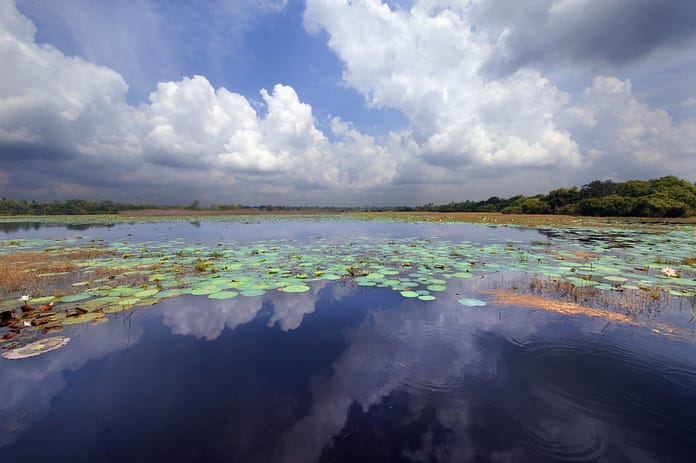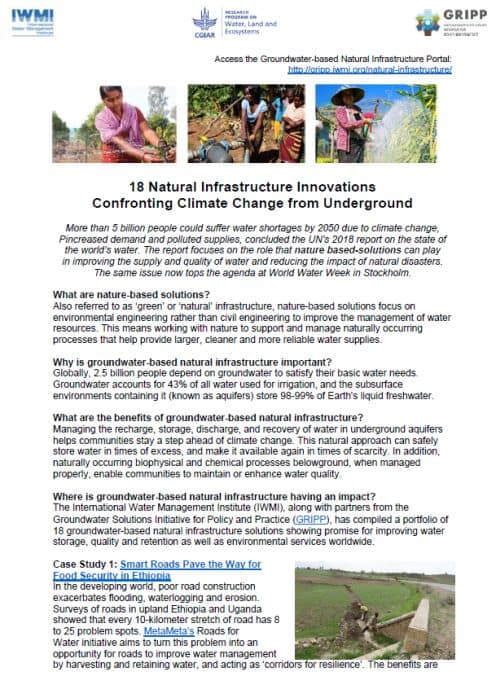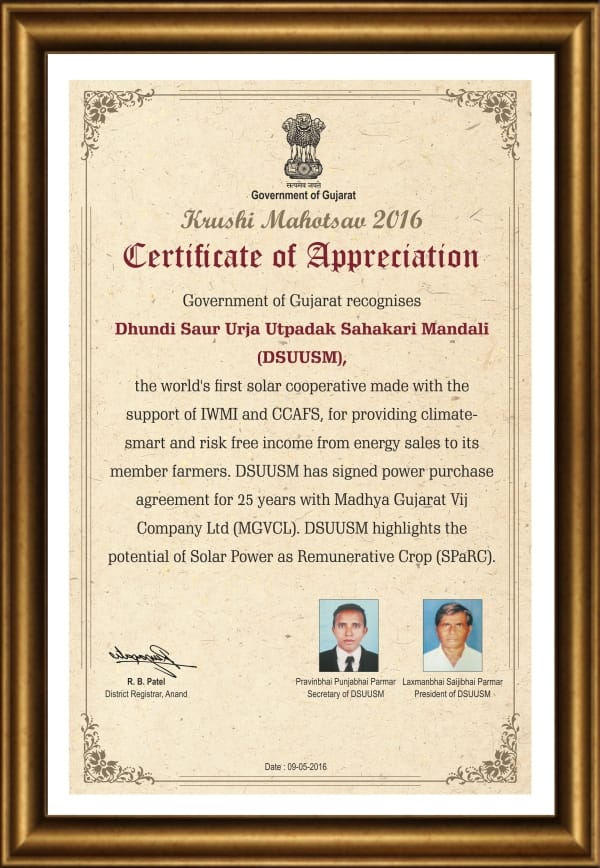(Colombo, 10, February 2020) A new project aims to reduce the number of diesel fueled irrigation pumps in Bangladesh, India, Nepal and Pakistan. Solar irrigation pumps offer a more sustainable solution, but with near zero operational costs the IWMI project will also seek to address potential overuse of this valuable water resource. So-called groundwater responsive solar irrigation is a means to sustainably manage water resources in a region where roughly, 12 million pumps are electric and 10 million are diesel.

With growing concerns about climate change and carbon emissions, all countries in South Asia have made international commitments to develop clean energy sources. The International Water Management Institute (IWMI)’s new Solar Irrigation for Agricultural Resilience (SoLAR) project will support governments’ aims to reduce agricultural emissions according to their nationally determined contributions (NDCs).
At the launch of the project in Colombo, Claudia Sadoff, Director General of IWMI, said; “With the projected rapid spread of solar irrigation, IWMI researchers are particularly interested in answering the second–generation questions – the impact of solar irrigation pumps (SIPs) on groundwater and on equity and social inclusion”.
“SoLAR will turn the vicious cycle of water-energy-climate into a virtuous one, if positioned along with the right policies, institutional support, and financial guidance”, said Regional Project Lead, Aditi Mukherji, Principal Researcher at IWMI.
South Asia is the world’s largest user of groundwater for agriculture. Farmers are heavily reliant on groundwater, the only reliable source of water for irrigation. SoLAR will also examine the overdependence of groundwater which poses a threat to the long-term sustainability of the resource, as well as being a large consumer of energy. Groundwater pumping, fueled by either electricity or diesel currently accounts for up to 20% of total carbon emissions from agriculture.
SoLAR will also seek to influence policies that ensure the distribution of solar pumps to everyone, including vulnerable groups. Currently, only 10% of solar pumps are owned by resource poor farmers and less than 5% are owned by women farmers”, said Mukherji “When we conclude this project in four years, and with the changes in policies, we hope at least 30% of solar pumps will be owned by poor or less privileged farmers, and 10% will be owned by women farmers in each of the countries”.
The project is led by IWMI and funded by the Swiss Agency for Development Cooperation (SDC).
SoLAR is part of second phase of SIP projects by IWMI. In early 2016, IWMI introduced the first-ever ‘Solar Pump Irrigators’ Cooperative Enterprise’ (SPICE) in Dhundi village, Gujarat. Members of this cooperative are using solar power not only to run their irrigation pumps, but also make an additional income by sending surplus energy back to the grid. “Just as any other crop, farmers can grow solar power as a remunerative crop”, said Shilp Verma, Researcher – Water, Energy and Food Policies, IWMI. “Inspired by the success and popularity of IWMI’s Dhundi solar cooperative, the Government of Gujarat launched SKY (Suryashakthi Kisan Yojna – a scaled up version of the Dhundi model)” added R. J. Vala of the Government of Gujarat. The new SoLAR project will focus on further improving the SKY scheme allowing farmers to maximize their income while conserving energy and groundwater.
***
For more information, please contact: Toby Johnson, Head Global Communications and Knowledge Management: e-mail t.johnson@cgiar.org; tel +94 (0)779425984
The International Water Management Institute (IWMI)
The International Water Management Institute (IWMI) is a non-profit, research-for-development organization that works with governments, civil society and the private sector to solve water problems in developing countries and scale up solutions. Through partnership, IWMI combines research on the sustainable use of water and land resources, knowledge services and products with capacity strengthening, dialogue and policy analysis to support implementation of water management solutions for agriculture, ecosystems, climate change and inclusive economic growth. Headquartered in Colombo, Sri Lanka, IWMI is a CGIAR Research Center and leads the CGIAR Research Program on Water, Land and Ecosystems (WLE).
Swiss Development Cooperation (SDC)
The Swiss Agency for Development and Cooperation (SDC) is the agency for international cooperation in the Federal Department of Foreign Affairs (FDFA). It is responsible for carrying out the foreign policy of the Federal Council in the areas of humanitarian aid, development cooperation and cooperation with countries in the East. The strategic goals of SDC include preventing and overcoming crises, creating access to resources, promoting sustainable economic growth, supporting the transition to democratic, market-based systems and helping to shape environmentally and socially compatible globalization. Gender equality and good governance are important guidelines.



